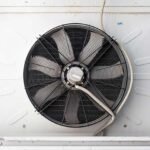Indoor air quality has a direct impact on how people feel throughout the day. Whether you’re at home, in an office, or managing a larger building, the air you breathe can affect your health, focus, and overall comfort. While outdoor pollution often gets the blame, indoor air problems are more common than most realize.
One of the biggest factors in indoor air quality is your HVAC system. It controls temperature, but it also moves air, filters particles, and helps balance humidity. When it’s working right, it creates a more comfortable space. When it isn’t, it can quietly make the air worse.
If your system hasn’t been checked in a while or you’re noticing new smells, symptoms, or temperature problems, the issue might be your HVAC setup. This article covers the warning signs that your system could be doing more harm than good, and what to look for before small problems get bigger.
Poor Maintenance Can Lead to Bigger Problems
HVAC systems collect more than just air. Over time, dust, pollen, and other particles build up inside filters, ducts, and coils. Without regular cleaning or filter changes, these systems start pushing those same particles back into the air you breathe.
Moisture is another issue. When airflow is blocked or not balanced properly, the system may trap humidity. This can lead to mold inside ducts, around vents, or near the evaporator coil. Instead of cleaning the air, the system ends up spreading allergens or moisture that can lead to health complaints.
This is especially important in commercial buildings, where larger systems move air across many rooms and floors. When something goes wrong, the impact spreads quickly.
In large buildings, it’s easy to overlook the impact of system maintenance on air quality. This is why regular commercial HVAC maintenance is so important. It helps catch airflow problems, filter failures, and ventilation issues before they affect the entire space. When handled on a set schedule, maintenance keeps systems running smoothly while helping support cleaner, healthier air across all areas.
Dusty vents, inconsistent airflow, or unusual noises from the system may all point to neglected parts. Addressing these issues early can prevent both health complaints and higher energy costs down the line.
Musty or Stale Smells in the Building
If you’re noticing musty or stale smells in one or more rooms, it could be more than just a cleaning issue. Smells that linger after vacuuming or wiping down surfaces often come from deeper inside the system. Damp filters, old ductwork, or mold on internal components can all cause odors to spread.
When HVAC units aren’t drying air properly or are circulating humid air through dirty vents, the result is a smell that won’t go away. If the air feels heavy or smells like mildew, it’s worth having the system inspected. Masking odors with sprays or cleaners won’t fix the root problem.
Allergy or Breathing Symptoms That Won’t Go Away
Some signs of poor air quality don’t show up in your vents—they show up in how people feel. If you or others in the building are dealing with frequent headaches, dry throats, itchy eyes, or allergy-like symptoms, the HVAC system could be part of the problem.
Systems that haven’t been serviced in a while may be circulating old dust, pet dander, or even mold spores. These particles linger in the air and trigger reactions, especially for people with asthma or allergies. Even if surfaces look clean, the air can still carry irritants.
These symptoms might fade when you’re outside and return once you’re back indoors. If that keeps happening, it’s a good idea to check the air system. Filter replacements, duct cleaning, or an airflow adjustment could reduce these issues and make the environment more comfortable for everyone.
Uneven Temperatures or Poor Air Circulation
When certain rooms feel warmer, colder, or stuffier than others, it’s usually a sign of poor airflow. HVAC systems should keep temperatures consistent across different zones. If they don’t, it means the air isn’t moving the way it should.
Blocked or closed vents, leaking ducts, or a failing fan can all cause air to circulate unevenly. That means stale air may sit in one room while another room gets too much airflow. Over time, this throws off comfort and can affect how fresh the air feels.
You might also notice that some vents are blowing weak air or no air at all. These changes often build up slowly, making them easy to miss at first. But they signal problems that can lead to more serious issues, both in system performance and air quality.
If parts of your space always feel too hot or too cold, have a professional look at how the air is moving. Simple adjustments or repairs can help restore balance and improve how the system runs.
High Humidity or Condensation Inside
Indoor humidity plays a big role in air quality. If the air feels damp or sticky, the HVAC system may not be removing enough moisture. That extra moisture doesn’t just cause discomfort—it creates the perfect setting for mold and mildew.
Signs of a humidity problem include condensation on windows, damp walls, or moisture around vents. These issues are more than cosmetic. They can cause damage to surfaces and make the air feel heavy or musty.
In most cases, HVAC systems help regulate humidity by pulling moisture out of the air. But when systems age or develop mechanical problems, that process slows down. You may need to clean or replace parts to get humidity back under control.
If you’re seeing signs of moisture inside your space, don’t wait too long. A service check can pinpoint the issue and help get things back to normal before mold becomes a bigger concern.
Your HVAC system does more than control the temperature. It also plays a big part in the quality of the air you breathe every day. If you notice persistent smells, uneven airflow, moisture buildup, or health symptoms that don’t go away, those signs might point back to the system itself.
Staying on top of small issues can protect your space from bigger problems. When systems are clean, balanced, and working as they should, the air feels better, and people feel better too. Regular checkups and attention to warning signs help keep your indoor environment clean, safe, and comfortable.






Leave a Reply